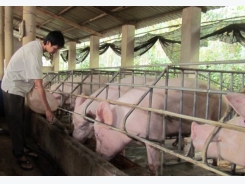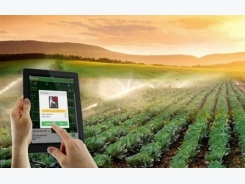Sugar beet pulp key to extremely valuable industries

In Europe every year, millions of tonnes of sugar beet pulp are only re-used as low-value products like animal feed and fertilizer, or are processed into green gas.
However, thanks to new cutting-edge extraction techniques, this pulp can now be transformed into high-value components used in sports equipment, automotive parts or even in the aviation industry, increasing its current worth by up to 50 times.
This is not a distant dream, but the concept of the very real PULP2VALUE project: 1 of 65 highly innovative projects funded by the €3.7 billion-worth Bio-Based Industries Joint Undertaking, aimed at a more sustainable, environmentally friendly growth.
At a time when demands for greener products and a more circular economy are ever growing, bio-based industries in many ways hold the key to European future.
Not only will they massively contribute to decarbonisation and reduction of fossil-based dependence through a better and more efficient use of local natural resources; in doing so, they also hold a vast economic potential.
In 2014, the bio-based industries already employed 3.3 million people in Europe, a number set to grow even further with the expected creation of an extra 400,000 skilled jobs by 2020 – 80% of which will be in rural areas.
On top of that, the exploitation of by-products and crops like thistles, dandelions and flax will allow farmers across Europe to diversify and grow their income, as well as boost the development of local economies.
“As confirmed in the independent interim evaluation report produced by an independent group of experts for the European Commission, the BBI JU is successful in bringing together actors from different countries and different sectors, combining knowledge and joining forces to attract consistent private investment,” Bio-Based Industries Joint Undertaking executive director Philippe Mengal declares.
“By the end of 2016 already, every euro invested by the EU was leveraging €2.6 of private investment: proof that the BBI JU is actively boosting European economy.”
The BBI JU was created with the aim of acting as a catalyst for the development of a bio-based European economy.
Central to this is the biorefinery – scaling up novel bio-based processes to treat all kinds of organic waste and side-streams & transforming them into high value products and ingredients.
In order to fulfil its mission, it is crucial for the BBI JU to keep promoting research and innovation across whole value chains, overcoming fragmentation and bringing together key stakeholders to further de-risk investment, ultimately establishing and organising new value chains and allowing for the creation of innovative and new sustainable business models.
Related news
Tools

Phối trộn thức ăn chăn nuôi

Pha dung dịch thủy canh

Định mức cho tôm ăn

Phối trộn phân bón NPK

Xác định tỷ lệ tôm sống

Chuyển đổi đơn vị phân bón

Xác định công suất sục khí

Chuyển đổi đơn vị tôm

Tính diện tích nhà kính

Tính thể tích ao




 Benchmarks set for optimal UK dairy performance
Benchmarks set for optimal UK dairy performance  Mekong Agritech Challenge underway
Mekong Agritech Challenge underway